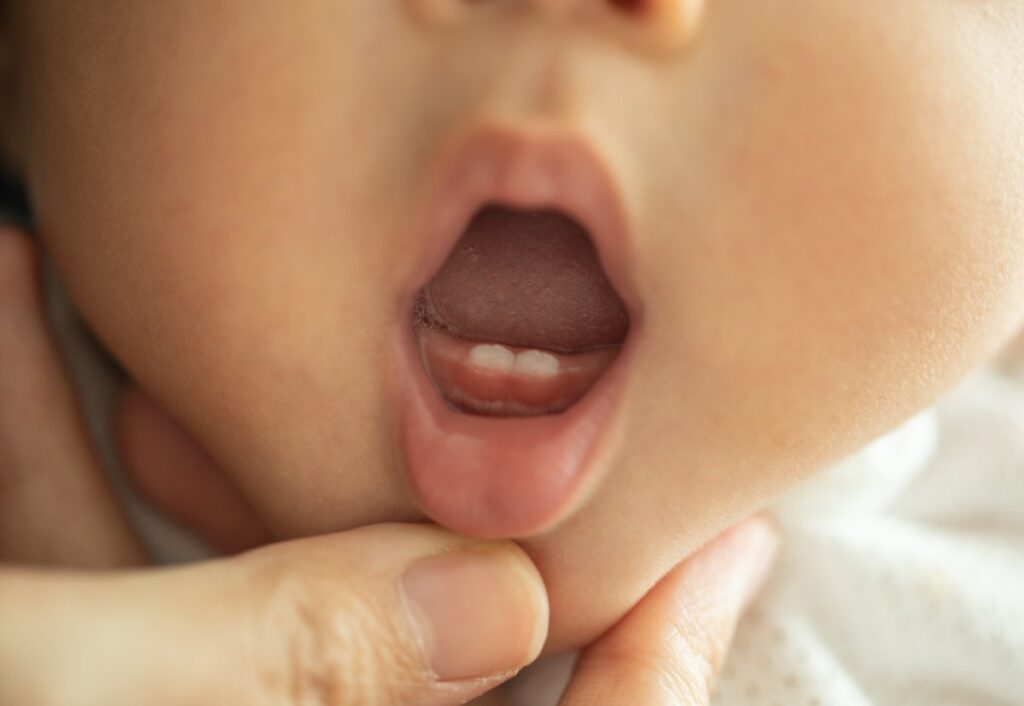
UPDATE: A groundbreaking study from the University of Rochester has revealed a startling link between a mother’s stress during pregnancy and the timing of her baby’s teething. Researchers found that infants born to mothers with elevated levels of the stress hormone cortisol tend to develop their first teeth significantly earlier—sometimes up to several months ahead of their peers.
Published in Frontiers in Oral Health, this urgent study involved 142 women from disadvantaged backgrounds in the U.S. The research indicates that prenatal stress could subtly accelerate biological aging in babies, with profound implications for their health. Lead author Dr. Ying Meng, an associate professor at the University of Rochester’s School of Nursing, stated, “A mother’s higher levels of stress-related hormones, particularly cortisol, during late pregnancy are associated with the earlier eruption of primary teeth in her infant.”
The team collected saliva samples from the mothers during late pregnancy to measure cortisol levels and other hormones. Findings revealed that by just six months of age, babies born to mothers with the highest cortisol levels had, on average, four more erupted teeth compared to those whose mothers had the lowest levels. This significant difference highlights the potential impact of maternal stress on fetal development.
The researchers believe that cortisol may directly influence fetal growth and mineral metabolism, crucial factors in bone and tooth formation. While minor links were also found between other hormones like estradiol, progesterone, and testosterone, cortisol stood out as the most influential factor.
Dr. Meng elaborated, “High maternal cortisol during late pregnancy may alter fetal growth and mineral metabolism, including the regulation of calcium and vitamin D levels—both essential for the mineralization of bone and teeth.” Cortisol is known to affect the activity of osteoblast and osteoclast cells, which are vital for bone structure and remodeling.
Typically, infants begin teething around six months and complete their set of 20 primary teeth by age three. However, the researchers emphasize that genetic and nutritional factors, along with prenatal stress, can significantly impact this timeline.
Future studies will investigate which biological pathways are most affected and whether early tooth eruption signifies broader developmental acceleration. “We still have key questions that need answering,” Dr. Meng noted. “For example, which maternal hormones or downstream developmental pathways drive the change in the timing of tooth eruption, and what does this speed-up mean for a child’s overall health?”
This urgent discovery adds to the growing body of evidence that prenatal stress can alter a child’s developmental trajectory in measurable ways, raising important questions about maternal health and infant well-being. Share this crucial finding to spread awareness about the implications of stress during pregnancy and its potential impact on the next generation.





